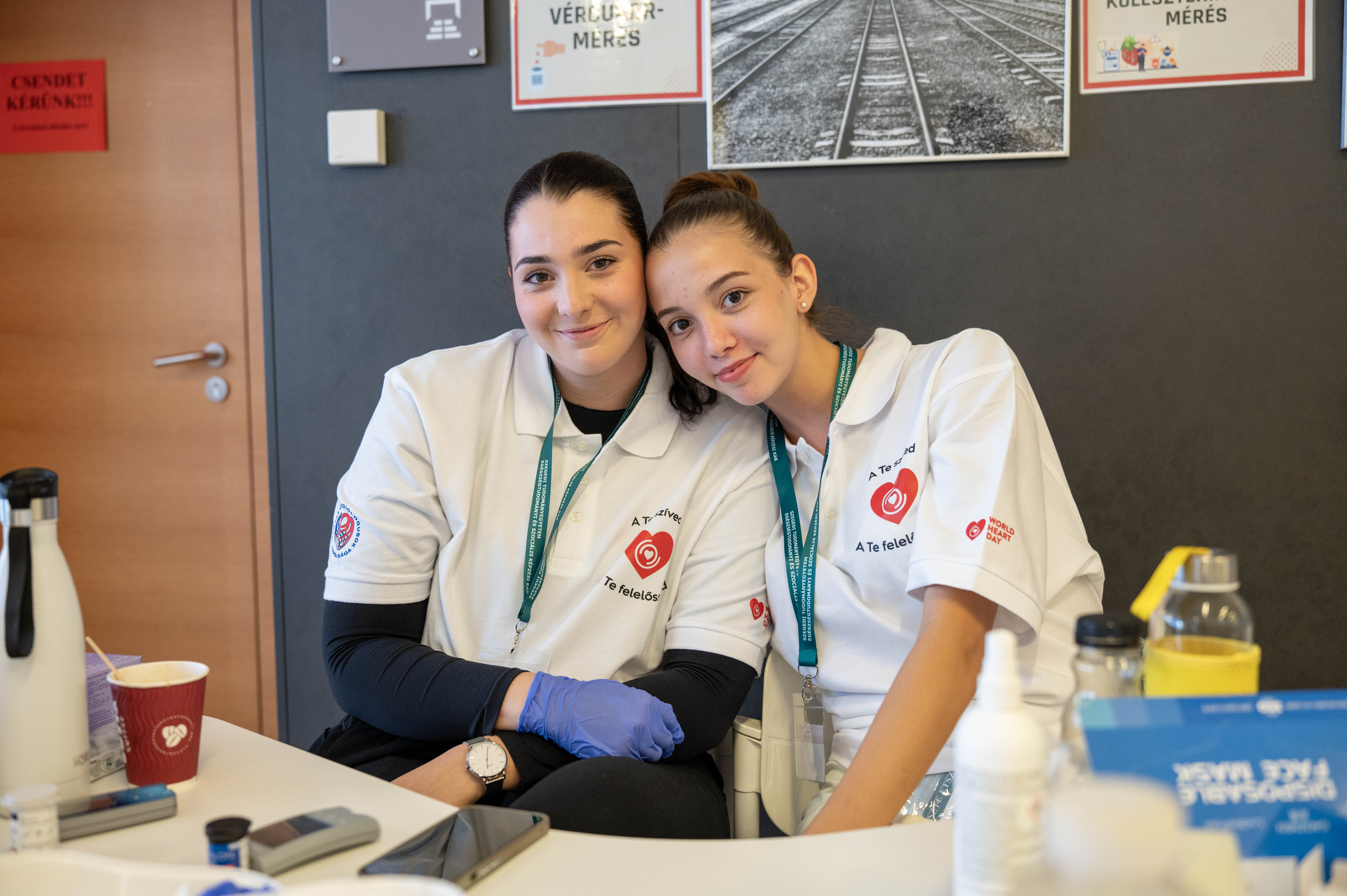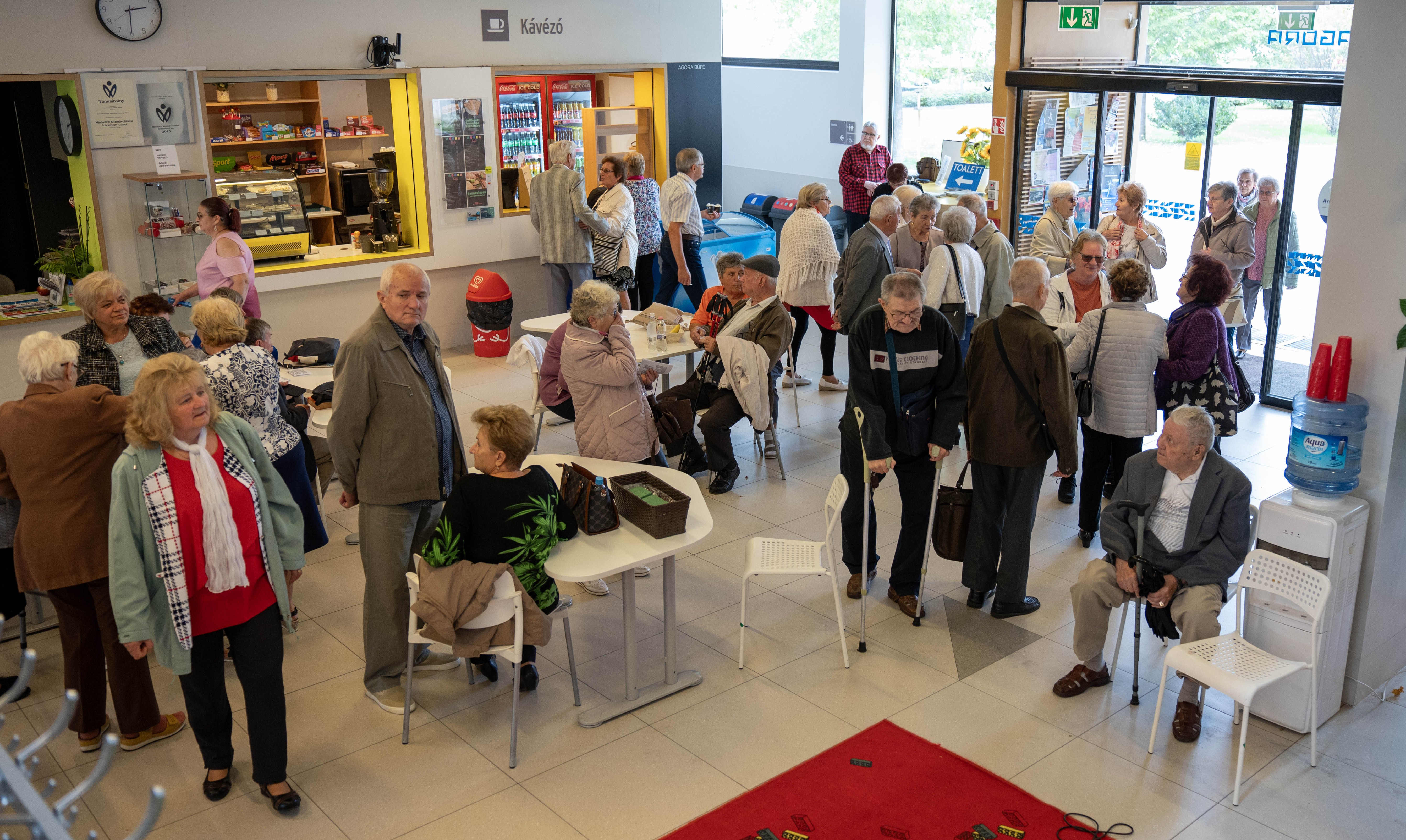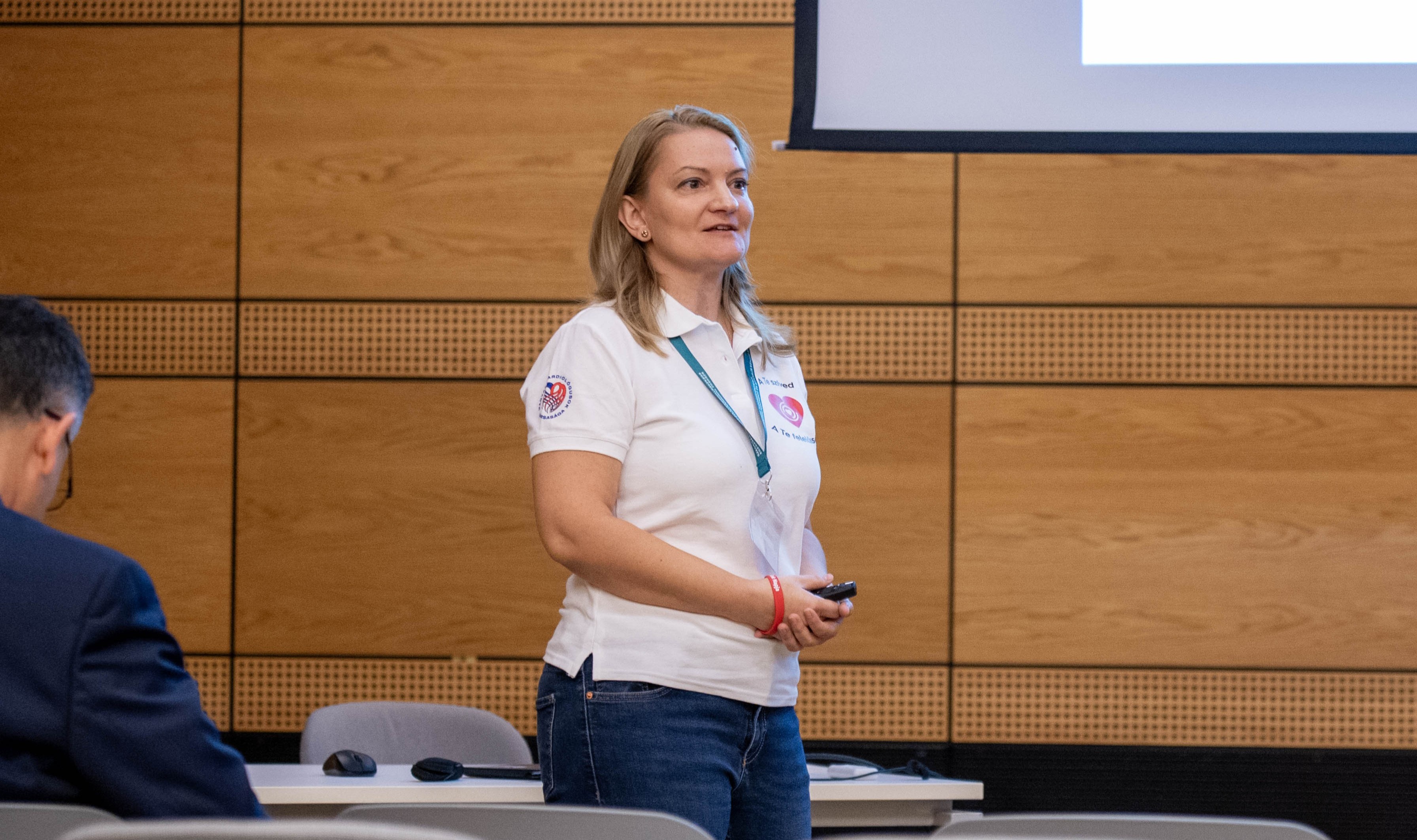and Social Studies

On the last Sunday of September, the Agora in Szeged was once again filled with life thanks to the World Heart Day event – visitors could participate in screenings, exercise programs, and health counseling. Students and lecturers of the Faculty of Health Sciences and Social Studies at the University of Szeged were also present to show that protecting our heart is a shared responsibility, and that heart health should not only be considered in case of illness, but in everyday life as well. Our faculty’s adjunct, Dr. Éva Máthéné Köteles, shared her thoughts about the event.
What is World Heart Day about?
World Heart Day is the Hungarian equivalent of the international World Heart Day, organized each year at the initiative of the Hungarian Society of Cardiology and the Hungarian Heart Foundation. Here in Szeged, we joined the event at the Agora, representing the Faculty of Health Sciences and Social Studies at the University of Szeged. The main aim is to highlight the importance of cardiovascular health, prevention, and the role of regular health screenings.

Who is the event for?
Although some screenings and programs required prior registration, the event is fundamentally open to everyone. It’s important to emphasize that it is not only for those who already face health risks or conditions. On the contrary, we warmly welcome healthy women and men, young and old alike, since regular screenings are beneficial and important for everyone.
What health screenings are available today?
Our faculty offers blood sugar and cholesterol testing, as well as blood pressure, pulse, and oxygen saturation measurement, along with body composition analysis. In addition, with the help of the FINDRISK questionnaire, we also assess the risk of diabetes, complemented by waist circumference, body weight, and BMI measurements. The program also includes Nordic Walking sessions and circulation-improving exercises combined with professional counseling.
In your experience, how much attention do Hungarians pay to their health?
By eight or nine in the morning, many people were already lining up for screenings. However, in general, it cannot be said that people pay outstanding attention to their health – in Scandinavian countries, for example, people live much more health-consciously. Perhaps in recent years we have seen an upward trend in the popularity of health awareness, which is encouraging.

Do you sometimes encounter shocking results during screenings?
We ourselves are no longer surprised by extreme values, but participants certainly are. I often hear remarks like, “I had no idea my blood sugar was this high,” or “With cholesterol levels like this, I really need to take action.” There are also cases where results are so striking that we advise further examinations and direct participants to specialists or their GP.
Do you plan to participate in the event in the future?
We were here last year as well, and the extremely positive feedback encouraged us to join again this year. The support of our students and the work we do is always welcomed with great appreciation, so we definitely plan to take part again next year.
 |
| Dr. Éva Máthéné Köteles |
Why is it so important for people to know their health values?
Everyone has only one heart, and it is essential that it functions well. With screenings, we can monitor our health, immediately see whether our values are within the normal range, or whether we need to make lifestyle changes to improve our quality of life.
Imola Prokes
Fotó: Ákos Ábel Fazekas